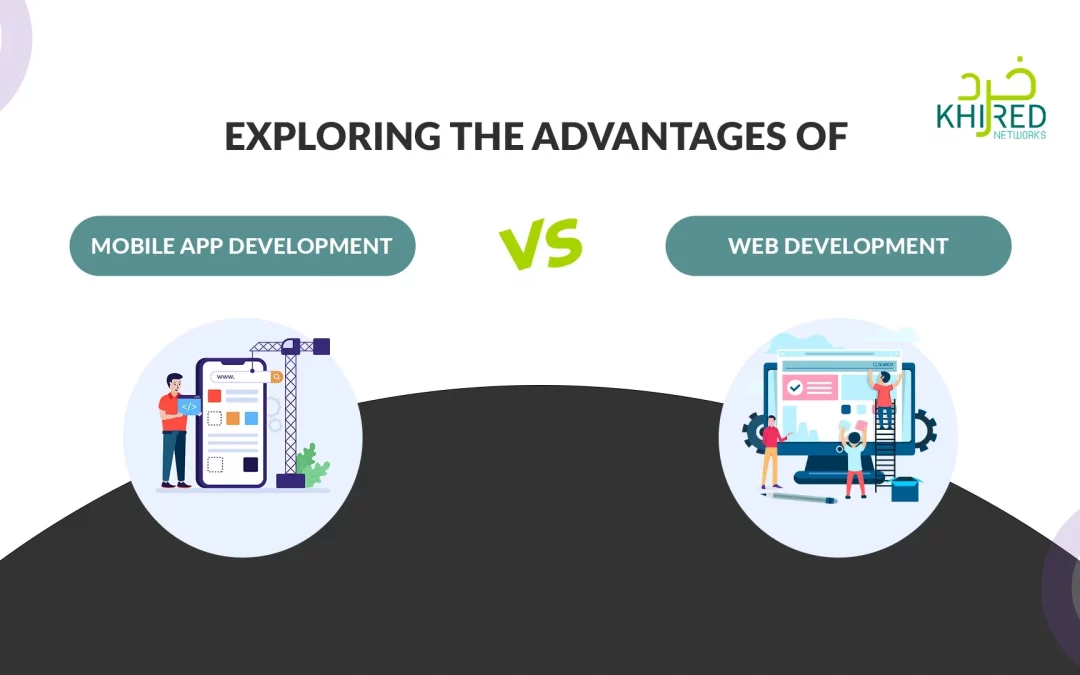The present tech and digital landscapes are extremely dynamic and offer a highly competitive market for businesses of all sizes. A strong digital presence has, therefore, become a need for time. One of the many approaches that help increase a startup’s market visibility is desktop application development.
Now, this application could be any, either a desktop app, a mobile, or a web app, each of which comes with its own benefits. In this article, we break down the benefits of mobile and web app development and which of the two could be the right one for your business. But first, let’s briefly define the two kinds of apps.
Web Application
It’s software that runs on a web server and is accessible through any web browser, such as Google Chrome, MS Edge, Yahoo, etc. Unlike desktop software, it runs smoothly on any device with an internet connection, and no installation is needed for its use.
Examples: Online Banking Platforms, Gmail, Trello, Amazon, etc.
Mobile Application
Also known as platform-specific software, mobile applications are software designed specifically for mobile devices, such as cell phones or tablets. They can be downloaded from app stores like Google Play or Apple’s App Store.
Examples: Instagram, Uber, Netflix, etc.
Comparing the Benefits of Mobile and Web Apps
Both mobile and web apps foster benefits for the business. Let’s compare these in detail.
1. Seamless User Experience
Regardless of the software type, businesses prioritize providing a seamless user experience when developing it. This is ensured in both platform-specific and web app development. But there lies a slight difference, which we shall discuss below:
Mobile App: A mobile application takes the lead when it comes to providing a personalized user experience tailored to meet the specific needs of the user. This software is able to leverage the native features of the device, such as the camera, microphone, and GPS, enhancing the users’ overall experience of using the device.
Web App: A web application does provide a user-friendly interface, ensuring that the entire software is user-friendly. However, compared to the former, the UX of a web app remains the same on all operating systems, which means no personalized experience for a user.
2. Good Loading Speed
Software’s speed is everything. Even an app with a good interface is of no good if its data-loading speed is significantly slow. App developers and software developers ensure that their software (whichever it may be) offers a good browsing speed, but then again, the platform-specific and website software’s speed harbors a slight difference.
Mobile App: This software usually presents a faster running speed as it can store data directly on the device. Some mobile apps with an offline mode functionality can function even without the internet. As a result, the users are better satisfied with the fast-running apps, leading to increased business growth and scalability.
Web App: Unlike the former software, a website application requires an internet connection—and not just any internet connection; a stable connection is required, which can hinder the software’s performance.
3. Cost-Efficiency
Capital investment and upfront costs are significant considerations since they determine the future of the intended product development. While both mobile and website software individually demand reasonable upfront costs, a comparison suggests how the two differ in ensuring cost efficiency.
Mobile App: The cost of development is slightly high for obvious reasons. A new app version must be developed for every operating system (Android and iOS). However, this high upfront cost does pay off later in the form of an enhanced user experience.
Web App: Web applications have an edge over the former in being more cost-effective. This software fosters fewer complexities with no requirement to develop different versions for varying operating systems and devices, be it a mobile or a computer. However, the cost may increase as the demand for new features arises for expansion.
The cost-effectivity of a web and a mobile application also depends on several factors, which are:
- The app’s complexity
- Platforms to target
- The ongoing maintenance requirements
4. Ease of Maintenance
Any app (mobile or web) requires maintenance for streamlined functionality and regulatory compliance, which in turn ensures a seamless user interface. The time that each of them takes is what brings the difference between the two.
Mobile App: Mobile software maintenance includes installing regular updates and debugging to remain compatible with operating systems. While this is a drawback, the efforts become worthwhile and fruitful when catering to loyal users.
Web App: This one is comparatively easier to maintain. Developers only need to change the base code, and the update is featured on the website. Users can then access the latest version and explore new features without a hassle.
5. Marketing & Reach
Marketing and branding make a business visible in the market. Application development helps with business marketing, but the desired marketing potential and market reach differ for mobile and web apps.
Mobile App: The marketing opportunities are slightly higher with the development of mobile apps. These are available on app stores where the companies can leverage targeting the potential customers easily. Moreover, the app’s push notifications keep the users engaged, increasing customer retention.
Web App: Developed web software depends on a search engine for greater reach. To attract organic leads, businesses leverage several marketing strategies (content and social media marketing) to increase traffic diversion to their website.
6. Ease of Access
Mobile App: Mobile applications undoubtedly offer a personalized experience when catering to a customer base. Therefore, this software earns its place in a user’s device only if they proceed with its installation, which limits the app’s accessibility.
Web App: Developed web software has an edge over mobile applications. The former is accessed on a web browser present on every device (desktop, tablet, or smartphone). This software type fosters a broader audience, allowing you to cater to the preferences of a broad customer base. Also, unlike a mobile application, it requires no installations, making it more easily accessible.
Benefits Unique to Mobile Application Development
Where both mobile and web applications share some common benefits, some advantages remain unique to the former application type. These include:
1. Monetization Opportunities
By developing a mobile application, businesses cannot only meet customer demand but also generate passive income and boost their growth. The different monetization opportunities associated with the app’s development bring more value to it, urging businesses to move forward with the process of developing one. These opportunities include:
- In-app purchases
- Subscriptions
- Mobile advertising
2. Increased Customer Engagement
If a business desires seamless communication with its customers through direct channels, mobile application development is the way to go. Features like in-app messaging, chatbots, and customer support boxes provide an instant messaging facility where users can state their queries and get timely assistance. The app also helps gather customer feedback, contributing to a stronger bond with the customers.
Benefits Unique to Web Application Development
Now, let’s discuss the advantages unique to a web application:
1. Cross-Platform Compatibility
Unlike a mobile application, a single version of the web app is compatible with all devices and operating systems. This cross-platform compatibility, in turn, increases the number of users of the software.
2. Analytics and Data Insights
One of the most significant benefits of developing website software is the provision of real-time user insights. The websites are easily integrated into analytics tools, such as Google Analytics and MS Clarity, which then helps with:
- Tracking user behavior
- Measuring website performance
- Gaining real-time insights
The data obtained from these tools allow smart decision-making, optimization of marketing strategies, and improvement of the user experience.
3. Integration with Third Party Services
Integration with third-party services, such as social media platforms, email marketing tools, payment gateways, etc., is much easier for websites than mobile applications. This enhances the website’s functionality, enabling seamless customer interactions.
Mobile App Development vs Web App Development: Choosing the Right Approach
A business’s choice for mobile and web application development is not limited to exploring the benefits of each. Besides this, several factors play a role in choosing the right approach for the business, including:
- Evaluation of business goals and objectives
- Analysis of customer needs and preferences
- Exploring the market trends and insights
- Calculating the approximate profitability
- Determining the upfront costs
- The type of visibility desired (ranked higher in search engines or availability on app stored)
- Expert advice and consultancy
Final Words
In this fast-paced digital era, developing a web or mobile application has become a necessity for any business. Each offers benefits whose significance cannot be overlooked. Understanding their benefits aids in making the right choice for a business.
However, considering the business goals and target audience is a must for making smart decisions and boosting the business strategy. Embracing either of the technologies helps improve interaction with the audience and enhance user satisfaction, ultimately driving growth in the business landscape.



